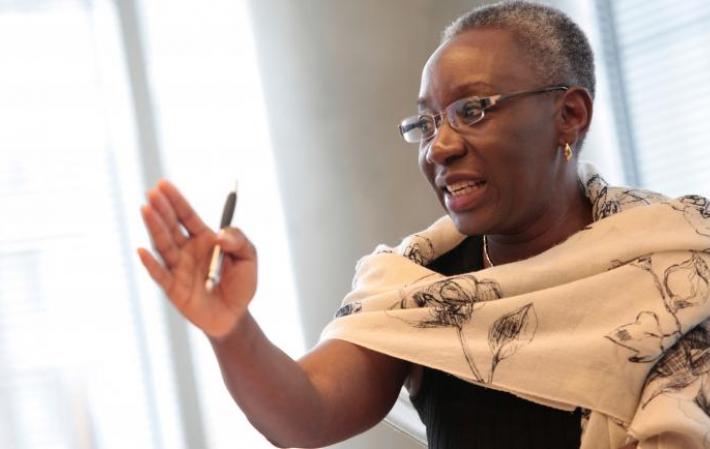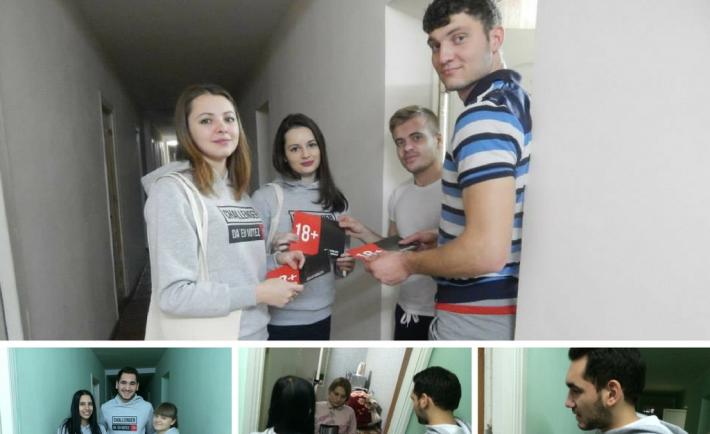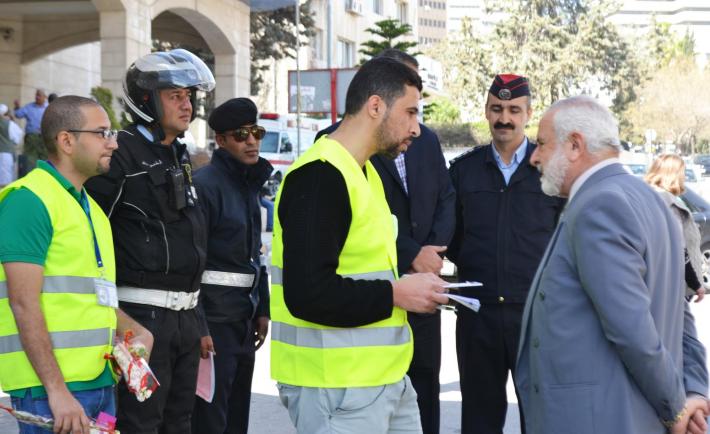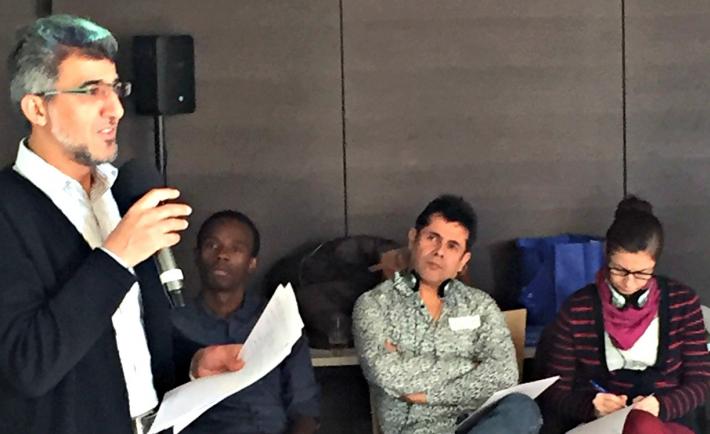
Sandra Pepera, Senior Associate and Director for NDI's Gender, Women and Democracy team.
One person is forced to flee their home every second according to the International Displacement Monitoring Center. The current estimated number of refugees and internally displaced people (IDPs) around the world is 65.3 million, a number equivalent to the total population of the United Kingdom. These numbers show that new and protracted crises are driving people from their homes at an alarming rate. Humanitarian systems devote huge efforts to ease refugees’ suffering, specially focused on providing basic needs like food and shelter. Though these interventions are crucial, political participation for refugees and IDPs is also important and can be the first step to finding viable long-term solutions for their plight.
“What will people think of us when they look back and find that in 2017, Wikipedia only had 16.97 percent of its biographies about women? They’ll say ‘shame on them,’” said Wikimedia-DC’s Rosie Stephenson-Goodknight at NDI, Wikimedia-DC and the Women’s Media Center’s first joint edit-a-thon. Wikipedia is the main online encyclopedia of our digital age. Openly sourced from the public, one might expect a nearly equal rate of women’s representation on Wikipedia—but it’s not even close. As Stephenson-Goodknight noted, only 17 percent of biographies on Wikipedia’s English site are of women, and it’s an even lower number on most of the site’s other 295 languages.

Participants in Moldova’s Challenger program canvass and get out the vote for parliamentary elections.
What helps citizens succeed as political leaders and activists? Beyond providing technical skills and tools, NDI has noted that developing certain attitudes and behaviors can help citizens participate more meaningfully in public life. Young political activists have consistently mentioned the need for improved “soft skills” to work effectively and succeed as leaders. USAID and other donor agencies are also recognizing the importance of putting these skills at the center of human development.
_1_0_0_0_0_0_0_0_0_0_0.jpg)
2017 Andi Parhamovich Fellow, Ashley Dauda, with NDI Chairman and former Secretary of State Madeleine K. Albright at NDI's annual MKA Luncheon.
I recently attended a conference on ‘the Political Economy of Gender and Women’s Empowerment in Africa,’ organized by the School of Advanced International Studies at John Hopkins University. Gretchen Bauer, a Professor of Political Science and International Relations from the University of Delaware, held a presentation on the global ranking of women’s representation in national parliaments. As Bauer passed through the slides of her presentation, I didn’t bother to look for Nigeria since I already knew where we stood on the list globally: 181 out of 191—the lowest in Africa.

Usharek+ participants in Jordan launch their advocacy campaign with the goal of improving traffic safety.
NDI’s new theory of change unifies important elements of youth political participation programs and depicts how they can interplay to change practices of youth participation. This theory, which I blogged about last month, was not merely academic exercise from the “ivory tower.” It draws on discussions with young politically active women and men across Africa and Latin America, collaborative discussions with democracy and governance practitioners from around the world, and deep reviews of effective youth programs NDI is conducting in Jordan and Kosovo. The Jordan and Kosovo programs show how the theory of change can play out in practice.
How did I come to understand what has become my mission in life? Well, I come from a social context in Pakistan where, like in all developing countries, women’s vision and committed approach to a practical life goes through tough challenges. It can even start within a woman’s own family. Fortunately, my family stood by my ambition of joining social work as a profession.
I come from a long line of tough, trailblazing, phenomenal women. My grandmother would go into villages in India with a bullhorn, telling poor women how to access birth control. My mother came to the U.S. at the age of nineteen to study endocrinology at University of California-Berkeley and eventually became a leading breast cancer researcher. There’s no way I could have begun my political journey without strong role models like them to inspire me.
Take a moment to reflect on what you wanted to become when you were eight years old—which, if you are a woman, was when you were at your most confident. How did that change by the time you turned eighteen? For those who were (or are) aspiring politicians, you might be interested to know that research in the U.S. says girls are equally politically confident—for example, in running for class president and student councils—as boys until high school, when it drops by half. NDI’s Gender, Women and Democracy team has taken on the task of finding out what this political confidence gap looks like on a global scale and, more importantly, how to address it.
Surging youth activism and leadership has the potential to change the world. Accordingly, young people are increasingly being recognized as indispensable agents for sustainable development and the source of a demographic dividend. But more work is necessary to support their active engagement and satisfy young people’s desire to have more than just a seat at the table. To help meet this need, NDI recently developed a unified theory of change, illustrated in the graphic above, which depicts the process of institutionalizing meaningful youth political participation.

Muslim in faith, Czech at heart: Muneeb leads fellow participants from the Czech Republic and Slovakia at a recent NDI gathering on joint responses to growing religious and ethnic intolerance
Muneeb has a quiet reserve that gives way to a beaming smile when you ask him about his work and life. A long-time resident of Brno, the capital of the Moravian region of the Czech Republic, Muneeb’s English is halting, so he is quick to turn to Czech, his everyday language for three decades. Muneeb is married, a father, and runs the Czech Center for Muslim Communities. He reserves his native Arabic for family and spiritual matters.
For Muneeb and other longtime residents of Muslim faith—many if not most Czech citizens—the refugee crisis has lifted the curtain on some unpleasant realities. The unprecedented wave of humanity from the greater Middle East has elicited sympathy and aid from many quarters of Czech society. But many express fear about what the presence of foreigners means for their safety and identity—although few if any refugees have actually set foot on Czech soil, much less settled there.